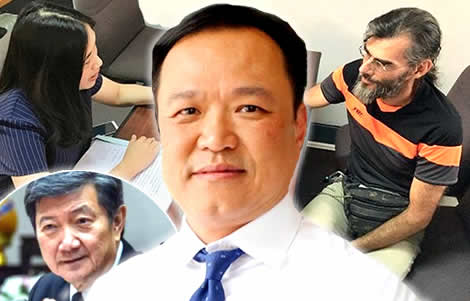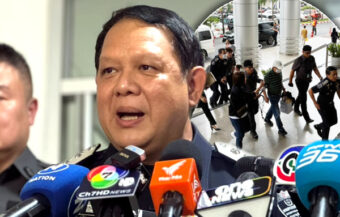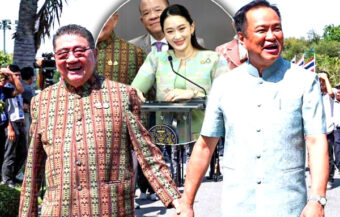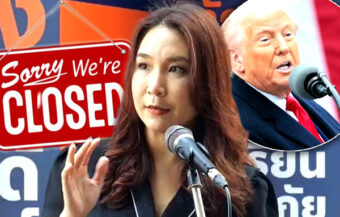Thailand’s public health system is a combination of public and private hospitals and the Ministry of Public Health has been moving towards reform and regulation of medical charges across the service. However, the country’s health care budget is only 1.9% of that of France and as the Administration Court made clear this week, the kingdom is still a developing country. In the short term, the issues raised by Mr Buse may well see the broader imposition of mandatory health care insurance across all visa types and the application of consumer protection laws to the hospital network. However, this may never bring about the universal pricing structure that Mr Buse called for in his submission to the court unless Thailand makes such a commitment under reciprocal treaty obligations.
The Administrative Court in Phetchaburi this week dismissed a case taken by a long term Dutch resident against tiered pricing based on the national interest. It ruled that as a developing country where foreign residents are socioeconomically better off, such an approach was not a breach of the constitution. The case again raises the issue of healthcare costs for non-national long term residents which has seen the Thai government move towards applying both standard maximum charges and moving towards mandatory private health insurance for all visa holders in the kingdom.

A determined Dutchman in Phetchaburi province has vowed to appeal the decision of a provincial court this week which threw out his case claiming that a tiered pricing system, introduced by the former Minister of Public Health Dr Piyasakol Sakolsatayadorn as part of an effort to reform and standardise hospital charges in 2019, was unconstitutional under Thai law.
‘I am very disappointed that the court mainly follows and repeats statements of the defendant without fact checks,’ said Mr Erwin Buse after the verdict was delivered by the Administrative Court for Phetchaburi.
52-year-old Dutchman suffers from cancer having been first diagnosed with the condition in 2015
The 52-year-old Dutchman, who suffers from cancer and needs ongoing treatment, has argued that the tiered pricing set down by the Ministry of Public Health for public hospitals should be based on actual cost while being blind to the patients who are availing of them.
However, the Thai court took a different view holding that the Thai government’s duty was, first and foremost, to the nation and to bolster public health services supported by Thai taxpayers and therefore, it should work to this end.
The court held that the ministry’s policy was not unfairly discriminatory, on this basis, arguing that foreigners living in Thailand, socio-economically, represent a group in society that earn more than most Thais and therefore should pay more.
‘The pricing was set on an appropriate basis of socioeconomic status, and it benefits Thailand, so it, therefore, doesn’t count as discrimination,’ said the court’s verdict.
Case against the ministry and the Minister of Public Health Anutin Charnvirakul challenging a 2019 order
Mr Buse who has been campaigning against the charges since they were introduced in 2019, took his case against the ministry itself and the current Minister of Public Health, Anutin Charnvirakul.
He requested that the court annul the 2019 order brought into effect by Dr Piyasakol and let the charges revert back to the universal rate which he had availed of since 2004.
The Dutchman lives in a rural area of Prachuap Khiri Khan with his Thai wife, where he farms goats. He travels weekly over 100km to a hospital in Hua Hin for treatment.
Four-tier charging scheme with foreigners married to Thai spouses in the same tier as short-term tourists
After the new charges and tier structure were introduced in 2019, an amendment was made by the ministry in respect of foreigners who were married to Thai spouses which included them in the same category as long term retirees and tourists in a fourth tier of people who were liable to charges at nearly twice those imposed on Thai nationals in the first tier.
The second tier is reserved for foreigners from neighbouring countries to Thailand and would apply typically to migrant workers while the third tier is for foreigners in Thailand who hold Immigration B visas and work permits who are also paying tax.
Mr Buse, in his submission to the court, asked that the 2019 pricing structure be struck down on the basis that it violated a provision in the 2017 Thai constitution guaranteeing equal protection.
Mr Buse has also claimed that he has been promised reimbursement for fees charged since 2018 but has not received any refund.
Tiered pricing considered acceptable by many in Thailand who feel wealthy foreigners should pay more
The key issue raised by Mr Buse is that of tiered pricing which is considered acceptable by many Thai nationals on the basis that foreigners should contribute more to public facilities such as parks and museums.
It is understood that Mr Buse has paid over of ฿500,000 in medical fees since he was diagnosed with cancer in 2015.
However, in excess charges from 2015 to 2019 at the time he began to query the dual pricing system, he calculated that the excess charges had cost him only ฿12,746.
There have been moves by the Ministry of Public Health in Thailand to extend consumer protection laws to private hospitals across the country to prevent overcharging of both Thai nationals and foreigners alike which had previously ranged from anything between 30% to 300% based on regular surveys conducted by the ministry.
Earlier, Buse lodged a complaint with the police and the National Anti-Corruption Commission before being confronted with the 2019 ministerial regulation
Before taking his case to the Administrative Court in Phetchaburi, Mr Buse had earlier lodged a complaint with police in 2019 after repeated interviews with health officials failed to see a change in the charges applied to him.
One example he gave, at that time, was the fact that he was forced to pay ฿300 for a doctor’s consultation as opposed to ฿50 for a Thai national at a public hospital.
The four-tiered pricing structure, introduced by the ministry in 2019, was part of a programme to provide guidance to public hospitals as the ministry sought to impose uniform and fair pricing across the public health system in accordance with consumer protection laws overseen by the Ministry of Commerce.
Ministry also introduced guidance on maximum fees to be charged across all public and private hospitals in the first step towards standardised charges
The fees proposed were maximum charges allowed by the hospitals in question and, in this respect, can be seen as an attempt to prevent abuse of unsuspecting foreigners.
The fees were announced on the 30th August 2019 and came into effect on the 30th of September 2019.
This prompted calls from Mr Buse, at the time, for a public inquiry into the charges as well as his complaint to the Royal Thai Police and the National Anti-Corruption Commission.
The law in respect of medical costs and public health services in Thailand is evolving with even the poorest Thais still expected to make contributions towards the cost of medical care and outpatient hospital visits.
Despite an advanced health system combining public and private sectors, Thailand is a developing country
Thailand is a developing country with quite an advanced system of public health care with both public and private hospitals working in concert on both a commercial and subsidised basis.
It is not unusual for any country to impose higher charges on foreigners or non-nationals on the basis that the national public health service is funded by the taxpayer.
Mandatory health insurance coverage in the Netherlands for citizens and foreign residents alike
In Mr Buse’s home country, the Netherlands, the health system is based on mandatory health insurance for both Dutch citizens and non-nationals living in the country as permanent residents.
Non-nationals granted permanent residency in the Netherlands are, by law, required to pay for a mandatory health insurance package covering a minimum standard of requirements within a stipulated time frame as a condition of the grant.
This also applies to residents who arrive in the country from countries within the European Union, aligned treaty countries and Switzerland.
In France, the government provides all citizens and long term resident non-nationals basic health coverage at the government’s expense but applies a levy on workers within the state.
France spends 75% of Thailand’s GDP on its health service, Thailand spends 1.9% of France’s budget
The country spends $5,370 per capita every year in public health care costs, a figure that would be the equivalent, based on 2020’s GDP, of 75% of Thailand’s entire economic output.
This highlights the significance of economic development in relation to the provision of public health coverage.
Thailand currently only spends $276 per capita each year on health care costs or 1.9% of what is spent in France.
The issue has already prompted a move towards mandatory insurance for all foreign visas in the future.
The short term answer to the issue being raised by Mr Buse from the point of view of the Thai government has been firstly to standardise, as far as practicable, the cost of health care across the hospital network in Thailand by applying progressive consumer protection laws.
However, the second response applicable to the unique situation of the expat community in the country is to increasingly mandate private health insurance for those seeking Non-Immigrant visas similar to the requirements for foreign residents in the Netherlands.
From 2022, all incoming tourists to Thailand will pay a levy and be automatically covered for health care insurance purposes.
Thailand is unlikely to see the universal single-tier pricing system advocated by Mr Buse unless it enters into treaties with other nations or blocs in the future.
Mass tourism to return again in 2021 with 10 million visitors targeted and full insurance cover with arrival levy
Change in insurance rules for retirement visas after some over 70s were forced out of Thailand
Deputy Public Health Minister leaves expats confused with ‘over 50s’ visa insurance press comments
Plans are currently in the pipeline to widen this requirement but it currently applies to all foreigners over 50 years of age seeking Non-Immigrant Visas ‘O-A’ and Non-Immigrant ‘O-X’ visas.
Join the Thai News forum, follow Thai Examiner on Facebook here
Receive all our stories as they come out on Telegram here
Follow Thai Examiner here
Further reading:
50-year-old Dutchman suffering from cancer files complaint against Hua Hin hospital over fees
Thai Ministry of Health brings in tiered pricing for medical services to foreigners and tourists
Battlefield friends help UK man and wife escape medical bill of £12k in Thailand. Now safely home
New health coverage proposals for foreigners in Thailand a concern for those with medical conditions
UK man stranded in Thailand facing a £100,000 medical bill may be rescued by crowd funding success
Thai government’s new compulsory insurance may only apply to retirement visas for foreigners


















